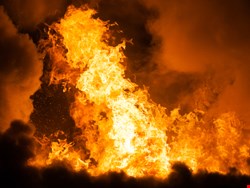
Cerf, speaking at Telefonica’s Campus Party event in London, argued that a cyber-fire department would be more effective than a cyber-police department as a first line of defense and would avoid police investigating false alarms.
“In the internet environment there are many fires caused by cyber-attacks – Trojans, malwares, worms, DDoS and so forth – and many small businesses and individuals are not prepared to respond to that, or don’t have the capability,” he said during his speech, as reported by V3.
He added, “What we need is a cyber fire department to defend us from attacks – not a cyber police department, as sometimes an issue is just a mistake. However, if it turns out, with evidence, that it was a criminal issue, then you would pass it on to the cyber police, to expand the metaphor."
Some security professionals concur with the idea – in theory.
“I’d be hard pressed to disagree with Vint Cerf’s comments given the sheer extent of the threat that we are facing,” said Ross Brewer, vice president and managing director for international markets at LogRhythm, in a statement to Infosecurity. “Having a centralized ‘fire department’ would provide a place for businesses to turn if they suspect they have become the victim of an attack, and leave the police to investigate activity that is most definitely criminal.”
However, he said, as with any emergency service, it is likely to become over-burdened – and not just with valid emergencies, but also with hypochondriacs wasting critical resources. He advocated installing the cyber equivalent of a smoke alarm that can constantly monitor applications and network session data to be alerted to suspicious activity in real-time.
“Businesses shouldn’t just rely on an emergency service to swoop in and save them from hackers; it is also imperative that they have adequate systems in place to detect breaches and protect themselves in the first instance,” Brewer said. “Organizations have too long relied on reactive defenses while they would be better placed undertaking proactive monitoring to cover all bases.”
He added, “Identifying the smoke early enough is what can save you – not just the fire-fighting.”